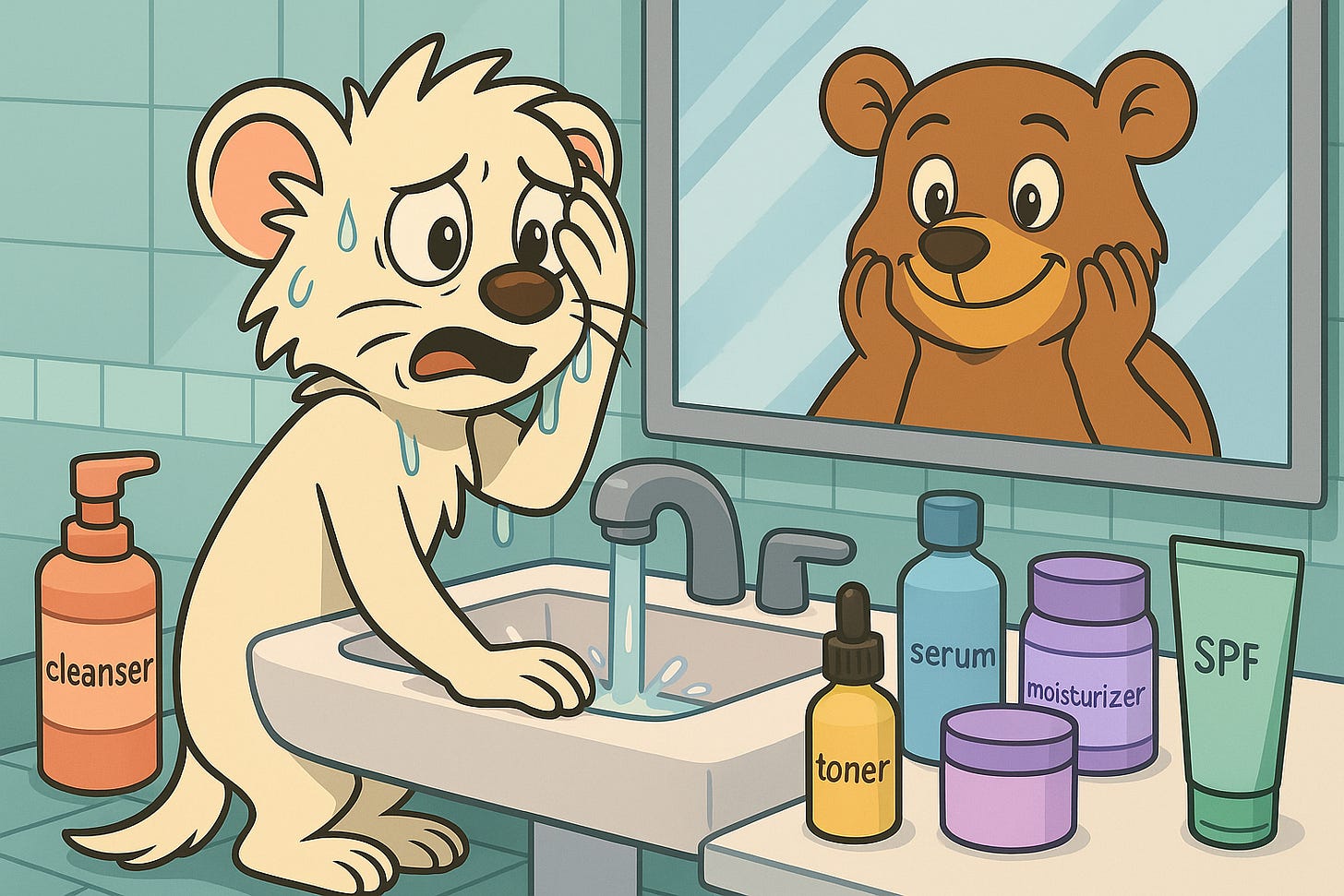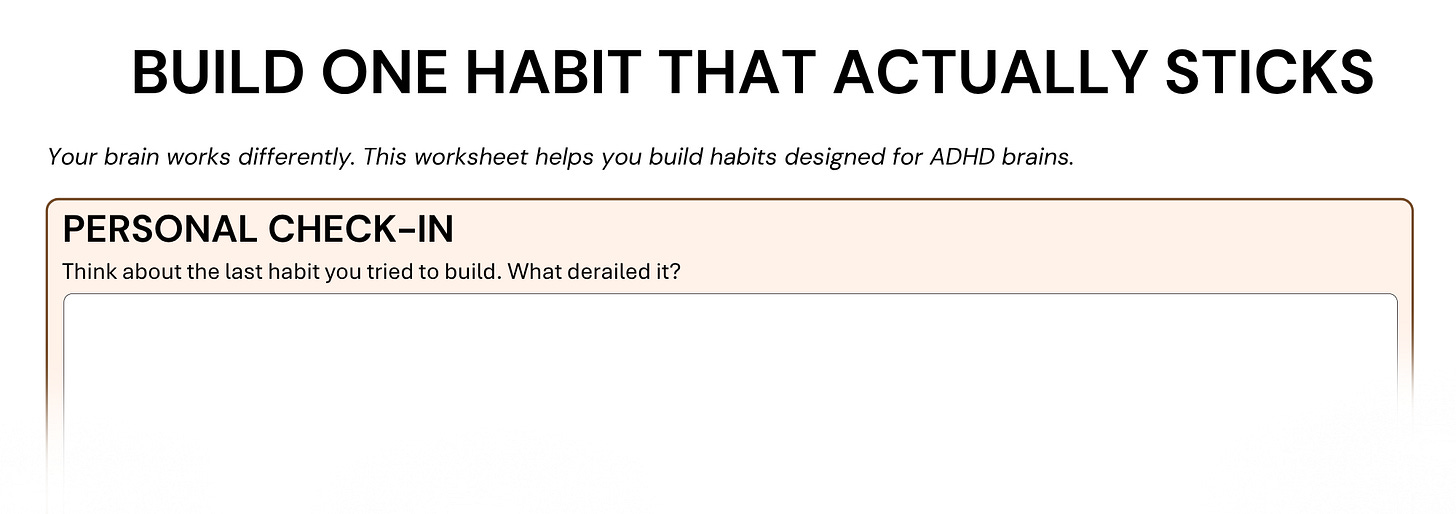Why Everyone Else Makes Habits Look Easy (And You Can't Even Remember to Drink Water)
Building habits for ADHD brains
You’re standing in your bathroom, staring at the skincare products lined up on your counter. Cleanser. Toner. Serum. Moisturizer. SPF.
Everyone says this is basic self-care. Your dermatologist recommended it. Your friends swear by their routines. There are literally instructions on the bottles.
But you can’t figure out which order they go in. And the thought of remembering to do this every single morning makes your brain feel like it’s shutting down. So you splash water on your face, feel like a failure for not being able to manage something so “simple,” and start your day already defeated.
If this sounds familiar, here’s what you need to know: You’re not lazy. You’re not undisciplined. Your brain’s reward system processes habits differently.
Today’s worksheet is going to help you build that habit that you’re struggling with.
The Habit Shame Spiral
The hidden tax behind ADHD and habits is that every time a habit fails, it leaves behind a little deposit of shame.
“I can’t even remember to drink water.”
“Everyone else can stick to a morning routine.”
“What’s wrong with me?”
For those of us who spent decades undiagnosed, these deposits compound. Forty years of failed New Year’s resolutions. Countless abandoned planners. The gym memberships you swore would be different this time.
You internalized every failure as a character flaw. And now, even thinking about starting a new habit triggers that dread: Here we go again. I’ll probably mess this up too.
Why Your Brain Makes Habits So Hard
Traditional habit advice assumes your brain works like this: Do something → Feel rewarded → Want to do it again → Habit forms.
But ADHD brains have altered dopamine signaling. Specifically, your brain has more dopamine transporters, proteins that sweep dopamine away from your neurons before you can fully register the reward.
Think of it like this: Neurotypical brains get a satisfying “ding!” when they complete a habit. Your brain gets a barely audible whisper. Maybe. If you’re lucky.
This is why you can’t “just stick with it for 21 days.” The reward signal that’s supposed to reinforce the behavior keeps getting interrupted. Your brain literally doesn’t get the memo that this thing is worth repeating.
Add in executive function challenges: difficulties with planning, working memory, time management, and impulse control, and you’ve got a perfect storm. Building habits requires the exact cognitive skills ADHD makes most difficult.
It’s not a moral failing. It’s neurology…
Dive into our ‘Apply It’ worksheet (Paid Subscriber Perk)
In this week’s worksheet you’ll brain dump every habit you’ve been thinking about, pick your one habit, break it down to something stupidly small, design your environmental cues, and lock in your immediate reward system. No shame. No perfection. Just one habit, designed a little better for your brain. Hope it helps :)
What Actually Works: Building Habits for Your Brain
1. Pick One Habit. Just One.
I know you have a list: exercise, journaling, meal prep, drinking water, meditation, cleaning routines, reading before bed, taking vitamins, flossing...
Stop. Pick ONE.




